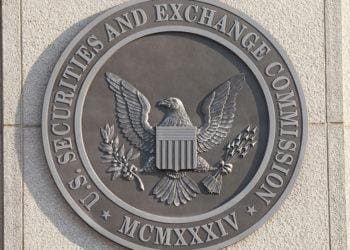Recent events put market controls imposed following the 2008 Great Recession to the test. While turbulence from COVID-19 was brought under control, further asset management red flags have appeared on the horizon.
Three recent events have renewed questions about potential systemic risks arising in different segments of the asset management industry: the publication of a Presidential commission report about the COVID-triggered market crisis of March 2020; the questioning of Treasury Secretary Janet Yellen at a Senate Banking Committee hearing; and the failure of the Archegos Capital family office.
The general subject in each is the same: concerns about the kinds of risks that brought about the 2008 financial crisis. But the issues relate to distinct corners of the industry and don’t necessarily signal a need for sweeping regulatory changes.
The 2008 financial crisis led to massive government intervention across the financial system. While the asset management industry was not central to this crisis, it was not completely spared. When Lehman Brothers failed, one large institutional money market mutual fund had to write off its holdings of Lehman debt and then “broke the buck,” as the net asset value (NAV) of its shares declined below $1. A massive shareholder exodus followed, forcing the fund to close. To avoid the risk of another failure, the federal government offered money market funds a limited term insurance program that would protect shareholders. The program was effective in that no other money funds failed while the program was in effect, no losses had to be paid out and the government retained the insurance premiums.
The #COVID19 related market turmoil in March revived memories of the 2008 crash, when the Fed was forced to act to halt a run on money market funds after the Reserve Primary Fund “broke the buck”, meaning the net asset value of the fund slipped below $1 a share. https://t.co/daatUjTVQa
— Kiasutha Research (@KiasuthaR) December 23, 2020
Separately, and of less systemic importance, several bond mutual funds and separate accounts that had invested a portion of their assets in complex subprime mortgage securities suffered serious declines in value. These losses triggered significant shareholder litigation and regulatory actions, but only in one extreme case – in which a fund failed to revalue its subprime holdings for months – did a fund precipitously close.
In an effort to ward off future financial crises, Congress passed the Dodd-Frank Act in 2010, which established the Financial Stability Oversight Council (FSOC), a multi-agency body charged with identifying large institutions that posed Lehman-like systemic risk, now called systemically important financial institutions (SIFIs) because they are “too big to fail.” The SEC, the asset management industry’s primary regulator, adopted two sets of new rules for money market mutual funds in 2010 and 2014, plus new rules regarding the liquidity and pricing of securities held by mutual funds and mutual funds’ use of derivatives. Due in part to the SEC’s tailored responses, the FSOC ultimately decided not to designate any large asset managers as SIFIs.
Now, more than 10 years removed from the 2008 crisis, recent events have prompted calls for a reconsideration of systemic risk in the asset management sector.
Presidential Working Group Report
In December 2020, the President’s Working Group on Financial Markets issued its report on the impact of money market mutual funds on the events of March 2020. The study reviewed the history of money market mutual fund reform since the 2008 financial crisis. The SEC’s 2010 rules had tightened credit, duration and liquidity requirements for all money funds. The 2014 rulemaking required “prime” and tax-free municipal money funds – that is, funds not invested primarily in U.S. government or agency securities – to retain minimum liquid assets and authorized them to impose redemption fees or redemption limits (“gates”) during market events. Redemption refers to the process by which investors sell their shares of mutual funds back to their managers, and the changes put in place allowed managers to limit that process during runs. Institutional “prime” funds were also required to use a floating NAV. The 2014 reforms caused a huge shift of assets from “prime” to government money funds.
In March 2020, despite these reforms, prime and municipal money funds, as well as ultrashort bond funds, experienced large redemptions ranging from 7 percent for retail municipal funds to 30 percent for institutional prime funds. The funds then had to sell portfolio assets and did not have cash to make new investments. Their withdrawal from the market threatened the “real economy” by reducing the availability of – and driving up the prices of – short-term loans needed by corporate employers and municipalities. The federal government again felt compelled to intervene, this time with non-recourse funding for banks to purchase assets from money funds. The Working Group report credits this intervention with resolving the short-term credit market crisis.
The Working Group report did not endorse any particular reform steps. Importantly, it set forth potentially conflicting goals: avoiding run risk and its attendant shocks to the short-term corporate funding market and maintaining corporate and municipal entities’ access to money fund investments as a source of credit during normal market conditions. Moreover, all of the proposals considered had significant drawbacks. For example, some would have only a marginal impact on run risk (e.g., floating NAV, changes to minimum liquid access requirements or softening triggers for “gates”). Others would make the funds less attractive to investors by increasing the funds’ operating costs and reducing yield (e.g., creation of a liquidity backstop organization like a guarantee fund or requiring sponsor intervention) or expanding risk management rules (e.g., floating NAV, gates) that investors prefer to avoid during times of market stress.
The short duration of the COVID-19-triggered financial market crisis (as distinct from the crises of health care and general economic impact) was due in part to prompt and massive government intervention. It also meant that March 2020 may have been a test run for future credit market events. The 2010 and 2014 money market reforms do appear to have reduced the size of the systemic risk by driving most money fund investors – those who choose safety over yield – to government money funds, which serve as safe harbors. Because of the tradeoffs presented by further reform proposals for the non-government and municipal money market funds, and because of the similar redemption behavior also observed in ultra-short bond funds, which have never had fixed NAVs, it seems unlikely that run risk can be completely eliminated from the “prime” segment of the market; it may simply not be a realistic policy goal. In this case, a further emphasis on risk disclosure to investors and on financial risk management by corporations and municipalities to avoid dependency on single funding sources or balloon refinancings may represent more effective ways to move forward.
Secretary Yellen’s Testimony on Asset Managers as SIFIs
During a March 24, 2021 Senate Banking Committee Hearing, Senator Elizabeth Warren questioned Treasury Secretary Yellen about designating the largest asset managers, specifically Blackrock, as SIFIs. Secretary Yellen declined to take up this suggestion and expressed a preference to continue to focus on the activities of asset managers generally rather than designating individual firms. In her prior role as Federal Reserve Chair, Secretary Yellen was an FSOC member when that newly created superagency first reviewed the operations of asset managers. FSOC ultimately did not designate either asset managers or mutual funds as SIFIs, due in significant part to deference to the money market and other reforms enacted by the SEC, the industry’s principal regulator.
WATCH: Sen. Elizabeth Warren pushed Treasury Secretary Janet Yellen on Wednesday to force investment firm BlackRock into tougher federal oversight. https://t.co/QIkJoiXktJ pic.twitter.com/6RwSQWfGVa
— The Hill (@thehill) March 27, 2021
Blackrock immediately put out a statement indicating that, while it’s not opposed to regulation, it is not a bank. This echoed the industry’s themes during the FSOC’s earlier deliberations in 2014: Asset management firms, unlike banks and broker-dealers, are only agents for their customers. That means that they don’t own the assets they manage, they don’t need to leverage their balance sheets (i.e., borrow and re-lend most of their reported assets) and they don’t owe money to their customers. Assets are instead owned by the customers and held at unrelated financial institutions. The managers are highly unlikely to fail, because their balance sheets are not laden with debt. But more importantly, if they did fail, the assets would still be available to the customers. Similarly, publicly available mutual funds are pass-through entities with very little debt and assets ultimately held by custodian banks; shareholders would not lose access to the assets, though of course shareholders may redeem if they fear the assets may decline in value.
Senator Warren may be less concerned with the risk that an asset manager may fail than with the potential influence of large asset managers upon the companies they invest in. For example, Blackrock manages in the neighborhood of $9 trillion in assets and can exercise influence through voting corporate proxies. But this kind of concern, regardless of its merits, is a different issue than the systemic risks of a Lehman-like bank failure, which spurred the creation of the FSOC.
The Archegos Failure
On March 26, 2021, just two days after the Senate hearing, Archegos Capital Management, a “family office” that operated like a high-risk hedge fund, failed. It defaulted on large derivatives positions and caused near or over $1 billion in losses for three major banking counterparties. The losses reflected poorly on the banks’ credit risk assessments, but the banks are already subject to FSOC scrutiny. The asset management side presented a quite different issue. After the 2008 crisis, managers of large private funds, including hedge funds, were required to register as investment advisers, even though the funds themselves are not public securities and are sold only to high-net-worth investors. Because family offices manage only money of a small set of family-related parties, they were excluded from the registration requirement. This deprived the SEC (and possibly Archegos’ counterparties) visibility into the scale and direction of risks undertaken by Archegos.
Credit Suisse when they realized all the other banks already sold off their Archegos exposure two weeks prior pic.twitter.com/HuFPtI8T3g
— Karl Smith, CFA (Level 1 Candidate) (@KarlSmithCFA) April 26, 2021
This incident was like a smaller-scale re-enactment of the near-collapse of insurance giant AIG in 2008, whose non-insurance credit default swap-trading operation in London took on massive financial default risk outside the purview of insurance and securities regulators. It may prove to be a good reason to further regulate the transparency of large family offices in the same manner as hedge funds. This seems to be the view of the Fed.
“The Archegos event illustrates the limited visibility into hedge fund exposures and … underscores the importance of more granular, higher-frequency disclosures,” said Fed Governor Lael Brainard in a statement accompanying the Fed’s May 2021 Financial Stability Report. Even this may be difficult, because family offices are excluded by statute from the definition of investment adviser; the SEC has authority to define “family office,” but likely not in such a way as to undermine the statutory exemption.
On the other hand, public mutual funds and their advisers, as well as managers of pension funds and other institutional accounts, are subject to extensive regulatory and prudential oversight, including express limits on the leverage they can take on. Archegos appears to be a case of an aggressive market player finding a hole in the regulatory scheme, rather than a failure of the already-regulated parts of the industry.
Conclusion
Asset management legal and compliance leaders should expect further regulatory scrutiny of potential systemic risks within the industry. The most likely targets for new regulation are the same ones that came up during the financial crisis: money market funds, short-term bond funds and hedge funds, including family offices that function in a similar way. Very large asset managers, including managers of public mutual funds and ETFs, have attracted political attention for their size, but the current administration does not seem eager to revisit the issue of whether the SIFI designation is appropriate. That being said, in an era when market-dominating tech and communications firms face increasing scrutiny, the possibility of additional activity-based regulation cannot be discounted.



 Mark Jensen is of counsel in
Mark Jensen is of counsel in  Ian Roffman chairs the firm’s Securities Enforcement and Litigation practice group and is a member of the Executive Committee.
Ian Roffman chairs the firm’s Securities Enforcement and Litigation practice group and is a member of the Executive Committee.






